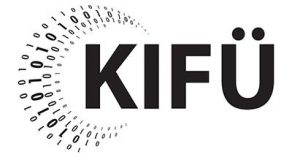
D-Ila in V4
ABOUT THE PROJECT
The main objective of the project is to increase the number of people in adult learning. We aim to achieve this goal by modelling and testing a data system for personalised training funding regarding soft skills, as a support mechanism for development of the Individual Learning Accounts. The data model will be optimised for using Artificial Intelligence to match learner data and training offers.
Knowledge sharing is a key project objective, allowing the target group to directly test the validated data model in practice and further develop it as needed. The project does not deal with AI development; we will use a ready AI solution and will not develop software, we will publish code in an open repository
The partners are going to test the ILA data model, providing a simulation for governmental institutions as well as other possible users (employers): running AI after setting different parameters (money to be invested, target group to be supported etc.) it will be easier to plan how much money in what share stakeholders should invest in adult training. In other words, we are going to test the data model, by enriching it with instance data and further, explore if it allows for specific use cases. This way we will be able to indicate which types of data are necessary for making inferences of a specific sort (such as training recommendations to individuals, targeted spending of training funds, supporting skills policies etc.).

While the focus of adult learning is increasingly on competence development, labour market expectations are shifting towards short training courses that produce immediate tangible learning outcomes. Both the funding system and the certification system for learning outcomes need to be adapted to meet these needs.
The design of competence pathways can be modelled by defining the pre-training competence profile of a specific target group, assigning training to members of the target group and then adding the competences acquired through training to the individuals on the output side. The model can be successful if, as a result of individualised funding, we can assign individualised training, and thus certified learning outcomes, to members of the target group. If this is achieved, and the target group members thus gain tangible benefits of relevance to the labour market, the take-up of adult learning will improve. On the other hand, personalised funding also means that we can differentiate the resources devoted to increasing access to adult learning, i.e. we can provide additional resources to those with access barriers – in a measurable cost-effective way.
In addition to the digitalisation of the economy, the key to the digital switchover is to increase the digital readiness of human resources; one obvious way to do this, is to develop the various components of digital literacy in a measurable way through adult learning. Increasing training capacity to develop digital competences has a direct impact on the digital transformation of society and the economy by increasing systemic resilience, and therefore an efficient allocation of training resources is crucial, which also requires the development of appropriate modelling procedures.
Far from being theoretical, the EU has taken concrete steps to improve the human dimension of adult learning and the digital transition, such as the launch of a discourse on individual learning accounts in the funding system, the DigComp framework for digital competence development, the description of ESCO competence-based activities, and the extension of the micro-credential approach to adult learning.
Our project aims to develop a data model that integrates in a single framework the ideas of 4 EU countries on individual learning accounts for adult learning, digital competence development and micro-credentials. The data model will be developed using the EU solutions listed above and tested in practice using AI-based solutions – with ongoing validation by our collaborating partners.
The main deliverable of our project is a methodological guide that will allow interested parties to populate the developed data model with their own data, thus enabling them to develop competence pathways in their field of activity, increase the number of adult learners, target their training capacity or better define their training needs.
